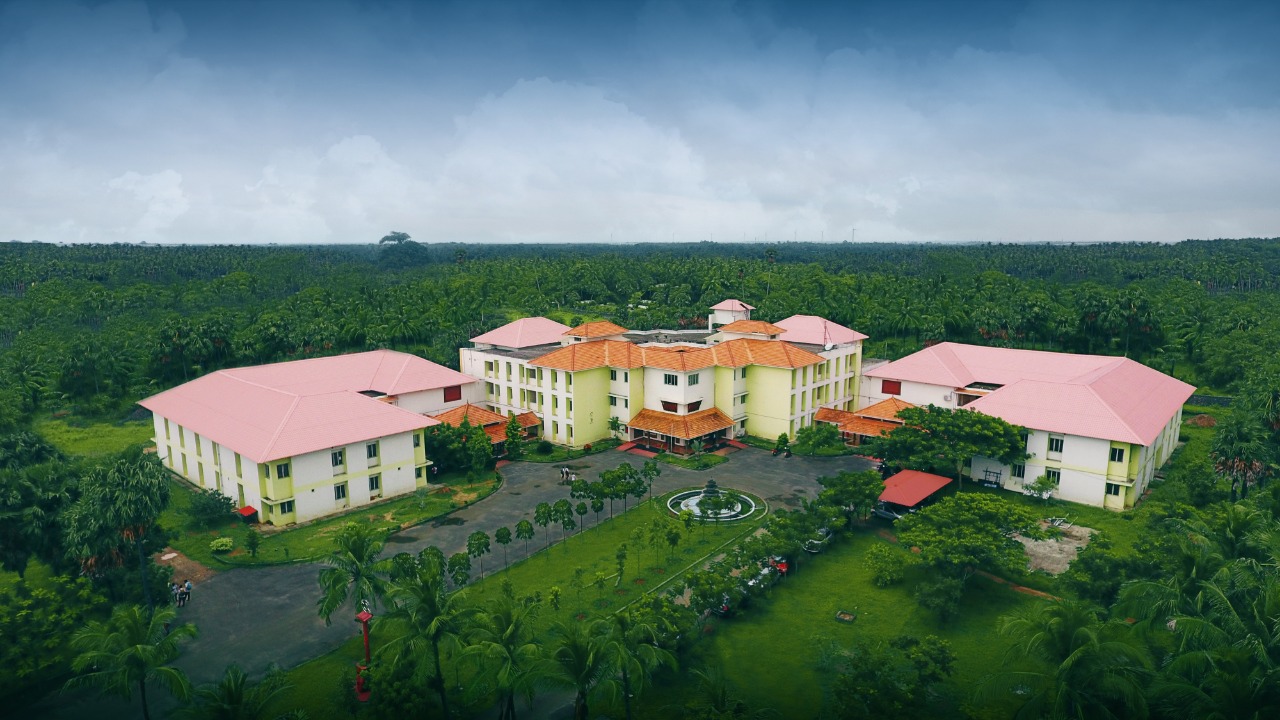
The Department of Electronics and Communication Engineering was started in the year 2012 and offers a UG Programme (B.Tech.) in Electronics and Communication Engineering. It is affiliated to the A. P. J. Abdul Kalam Kerala Technological University(KTU). The department has a team of committed faculty members who are not only well qualified but are also backed by rich industrial / research / teaching experience. Quality and growth is the motto of the department. The programmes are developed to provide the student with depth and breadth of knowledge in Engineering Science and Engineering Design. The Department also emphasizes the development of non-technical skills such as communication and team work.
Vision
The Department of Electronics and Communication Engineering aims to achieve excellence in academics and research and develop globally competent professionals with social commitment
Mission
To empower the students with the right attitude, knowledge and leadership skills through value based education using modern technologies and innovative teaching pedagogies.
To develop students’ personality through participation in extra and co-curricular activities.
Programme Educational Objectives (PEOs)
PEO 1 – Graduates will be trained to have a successful career in Electronics and Communication Engineering.
PEO 2 – Graduates will be capable of designing, fabricating and testing electronic products.
PEO 3 – Graduates will apply knowledge and analytical skills to solve real-life technical problems.
Programme Outcomes (POs)
PO 1: Engineering knowledge: Apply the knowledge of mathematics, science, engineering fundamentals, and an engineering specialization to the solution of complex engineering problems.
PO 2: Problem analysis: Identify, formulate, review research literature, and analyze complex engineering problems reaching substantiated conclusions using first principles of mathematics, natural sciences, and engineering sciences.
PO 3: Design/development of solutions: Design solutions for complex engineering problems and design system components or processes that meet the specified needs with appropriate consideration for the public health and safety, and the cultural, societal, and environmental considerations.
PO 4: Conduct investigations of complex problems: Use research-based knowledge and research methods including design of experiments, analysis and interpretation of data, and synthesis of the information to provide valid conclusions.
PO 5: Modern tool usage: Create, select, and apply appropriate techniques, resources, and modern engineering and IT tools including prediction and modeling to complex engineering activities with an understanding of the limitations.
PO 6: The engineer and society: Apply reasoning informed by the contextual knowledge to assess societal, health, safety, legal and cultural issues and the consequent responsibilities relevant to the professional engineering practice.
PO 7: Environment and sustainability: Understand the impact of the professional engineering solutions in societal and environmental contexts, and demonstrate the knowledge of, and need for sustainable development.
PO 8: Ethics: Apply ethical principles and commit to professional ethics and responsibilities and norms of the engineering practice.
PO 9: Individual and team work: Function effectively as an individual, and as a member or leader in diverse teams, and in multidisciplinary settings.
PO 10: Communication: Communicate effectively on complex engineering activities with the engineering community and with society at large, such as, being able to comprehend and write effective reports and design documentation, make effective presentations, and give and receive clear instructions.
PO 11: Project management and finance: Demonstrate knowledge and understanding of the engineering and management principles and apply these to one’s own work, as a member and leader in a team, to manage projects and in multidisciplinary environments.
PO 12: Life-long learning: Recognize the need for, and have the preparation and ability to engage in independent and life-long learning in the broadest context of technological change.
Programme Specific Outcomes (PSOs)
PSO 1 – Graduates will apply knowledge of mathematics, science and Electronics and Communication engineering fundamentals to identify, analyse and solve complex engineering problems.
PSO 2 – Graduates will select and apply appropriate techniques, resources and software tools for engineering activities.

